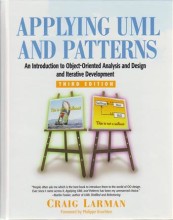Summary: Infections And Disorders
- This + 400k other summaries
- A unique study and practice tool
- Never study anything twice again
- Get the grades you hope for
- 100% sure, 100% understanding
Read the summary and the most important questions on Infections and disorders
-
vragen bij colleges
This is a preview. There are 15 more flashcards available for chapter 02/07/2019
Show more cards here -
antibody respons: what is primary respons? and secondary respons?
primary:
- first infection
- IgG/IgM
- takes more days to reach the peak of antibodies
secondary:
- repeat infection
- IgG mainly, bit of IgM
- higher than primary -
what are memory cells part of: adaptive or innate immunity ?
adaptive, because:
- b/t lymphocytes
- antibodies
- effector b cells
innate:
- nk cells,
- phagocytes
- epithelial barrier
- dendritic cells -
what is a 'fasciola hepatica' and where does it belong to?
suckling worm, belong to trematoda, platyleliminthes, digenes -
what is symbiosis/parasitism/commensalism/mutualism?
Symbiosis
-is close and often long-term interaction between two or more different biological species (need each other)
Parasitism
-is a relationship in which one member of the association benefits while the other is harmed.
Commensalism
-describes a relationship between two living
organisms where one benefits and the other is not significantly harmed or helped.
Mutualism
-both benefit, but are not dependent on each other -
examen vragen
This is a preview. There are 41 more flashcards available for chapter 04/07/2019
Show more cards here -
There are two types of antibody responses; primary and secondary. Which of the following statements is NOT true?A. The amount of antibodies produced in the secondary respondse is higher than the amount produced in the mrimary response.B. In the primary response it takes more days to reach the peak of antibodies.C. The secondary response occurs as a result of primary contact with an antigenD. In the secondary reaction, mainly igG is producted and a bitof IgMside note: allergy is 2nd immune response right?
C. The secondary response occurs as a result of primary contact with an antigen -
Memory cells are part of...A. Innate immunityB: adaptive immunity C. Both innate and adaptiveD. None of the above
B: adaptive immunity -
2 statements are made:1. bacteria can become resistant to antibiotics using cell lysis, called transduction2. during transformation, bacteria can take up free DNA-fragments in order to become resistant to antibioticsa. both statements are wrongb. statement 1 is correct and 2 is wrongc. statement 2 is wrong and 2 is correctd. both are correct
statement 1 is wrong and statement 2 is correct -
which of the following is not a factor that influences antibiotic functionality?a. absceccesb. nutrients in the bodyc. pHd. kinetics of the drug in the body
nutrients in the body -
What about viruses is NOT true?A. It needs a hostB. all viruses affect youC. Some viruses can affect the behaviour of the host to improve transmissionD. It is an obligate, intracellular parasite
all viruses affect you -
Which of the following sentences is NOT related to smallpox:A. 30 % fatality rateB. variolationC. arbovirusD. Lady Mary Montagu / vaccinia or cow pox
arbovirus
- Higher grades + faster learning
- Never study anything twice
- 100% sure, 100% understanding

































